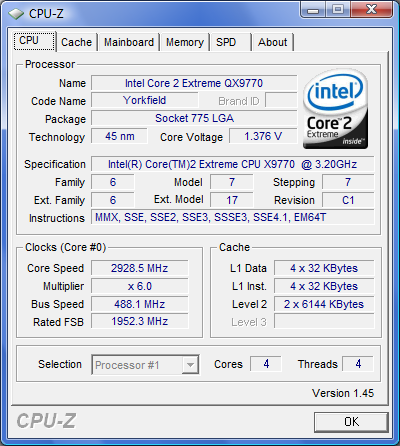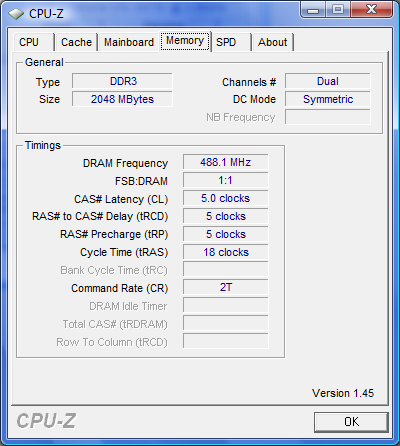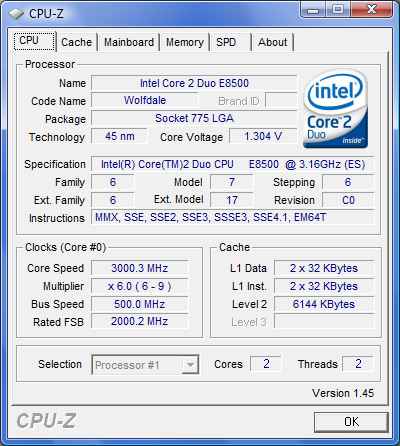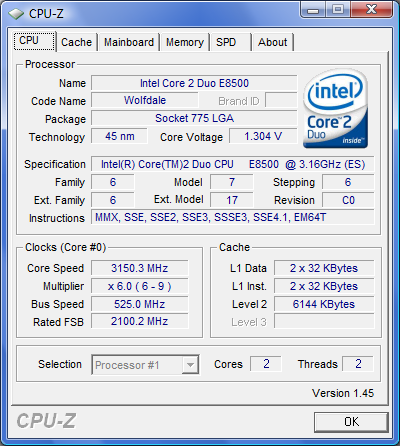Intel P45: The New Chipset Lacks Progress
Overclocking
We used the Asus P5Q-E to look at the P45 chipset’s overclocking abilities. Since it has been shrunk to Intel’s 65 nm process, we expected the P45 to outperform the P35 chipset, which typically can reach somewhat more than 500 MHz (2000 MHz, quad-pumped) on air cooling.
BIOS 0205: No More than 450 MHz
Our first overclocking attempts were disappointing, as we could not reach much more than 450 MHz without making the system really unstable. We tried various processors, which didn’t solve the issues, so we contacted Asus and received a new BIOS.
BIOS 0506: 488 MHz FSB

The updated BIOS version brought some improvement, but the maximum 488 MHz, which was somewhat reliable, still looked disappointing knowing that many P35-based motherboards break the 500 MHz barrier. Again, we asked for some support, as the chipset shouldn’t be the limiting factor. We even worked with conservative memory timings to make sure that the memory doesn’t become the issue.

BIOS 0605: No improvements
New BIOS, same result. Even the latest version did not improve our overclocking experience.
Get Tom's Hardware's best news and in-depth reviews, straight to your inbox.
New Board, BIOS 0702: 500 MHz FSB

The new motherboard finally made a difference, although both models were labeled as revision 1.01G. According to Asus, our first sample was still an early version. Our new overclocking results could be reached without modifying our settings, which we had used to reach 488 MHz on the first sample and the older BIOS versions.
525 MHz FSB for Now

The highest reliable FSB speed we could reach on the P5Q-E was 525 MHz, which equals a 2100 MHz bus. This is very much what you can expect from P35 motherboards; hence there is no additional overclocking margin (yet). However, looking at the BIOS history and the teething pains with respect to overclocking, it is very likely that future updates will enable slightly higher FSB speeds. And we cannot be entirely sure that our two test processors—a Core 2 Extreme QX9770 and a Core 2 Duo E8500—don’t represent a bottleneck by not supporting faster system speeds reliably.